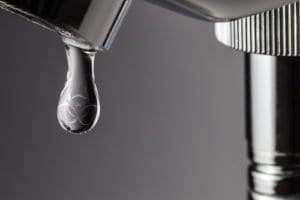Legal Aspects Of Homes With Lead In Drinking Water

Is There Lead In Your Drinking Water?
Recently, in the news, lead in drinking water is making a splash in the news. Arguably, this issue is nothing new. However, when an issue finds itself in the focus of the media, people pay more attention. As with any potential defect in a residential property, lead issues require attention for both residential home buyers and sellers. Read more about the legal issues surrounding lead in drinking water or connect with the real estate lawyers at Kahane Law Office in Calgary to learn more.
What Is Lead?
Lead occurs naturally as an element. As a metal, it is soft and malleable, making it easy to work with. Historically, its widespread use included many industrial, commercial and retail processes and products. When exposed to lead, such as when consuming lead in drinking water, the body absorbs it by touch, breathing and swallowing it. The body builds up lead in the bones, blood and tissue and as this internal exposure increases, so do the heath impacts. Long term lead exposure leads to weakness, anemia, and brain and kidney damage.
How Lead Gets In Drinking Water
Lead in drinking water occurs regularly. While in small doses, lead may not have a material impact, however, regular continued exposure may lead to serious health concerns. Lead in drinking water occurs in several ways. First, many old municipal systems included lead pipes. Second, older homes also may have lead pipes in the home or lead in the joints connecting copper lines. Running water leads to less lead in drinking water, whereby water that sits in a lead pipe, particularly when it is warm, causes increased lead content to enter the water.
How To Test For Lead In Drinking Water
Different municipalities approach testing and lead notification in different ways. In Calgary lead was used mostly between 1939 and 1947 for the water service lines. Note that other homes may have lead in drinking water due to non-service line lead exposure. The city identifies about 550 homes that include lead water service pipes. Specifically, the City of Calgary identifies the following numbers of homes per specific community:
- Altadore (5)
- Bankview (12)
- Beltline (17)
- Bridgeland/Riverside (44)
- Capitol Hill (18)
- Cliff Bungalow (10)
- Crescent Heights (55)
- Downtown west End (1)
- Elbow Park (12)
- Elboya (3)
- Erlton (5)
- Highland Park (2)
- Hillhurst (16)
- Hounsfield/Briar Hill (2)
- Inglewood (36)
- Lower Mount Royal (3)
- Manchester (3)
- Manchester Industrial (2)
- Mission (3)
- Mount Pleasant (53)
- Ogden (16)
- Parkhill (9)
- Ramsay (32)
- Renfrew (19)
- Richmond (3)
- Rideau Park (2)
- Rosedale (65)
- Roxboro (4)
- Scarboro (7)
- Shaganappi (1)
- South Calgary (13)
- Sunalta (5)
- Sunnyside (13)
- Tuxedo Park (38)
- Upper Mount Royal (17)
- West Hillhurst (16).
Private companies test water for lead in drinking water in your home. A number of certified testing laboratories complete these tests.
Legal Issues Surrounding Lead In Drinking Water
Given that the instillation of lead in homes occurred many decades ago, in most instances, people lack the ability to sue a trade due to the Statute of Limitations. Legal issues arise more often, when people buy or sell their homes. When a new homeowner discovers potential health risks associated with lead in drinking water in their new home, they may seek to sue the seller and / or their real estate agent. The legal issues associated with lead in drinking water for both buyers and sellers are described below.
What Home Buyers Need To Know
Any buyer concerned about lead in drinking water, should ask their real estate agent to include a condition in the contract allowing the buyer to test the water, see if the City or municipality sent any notices or have the home inspected for lead. Ultimately, the law still comes down to Caveat Emptor, or buyer beware. This means that a buyer needs to know what it is that they plan to purchase before legally binding themselves to that contract. The condition allows the buyer to do their due diligence and, if not happy with what they find, undo the transaction without negative contractual consequence.
What Home Sellers Need To Know
Sellers need to determine their risk tolerance. A latent defect is one that is not reasonably discoverable. A seller is not required to disclose defects that are reasonably discoverable. Accordingly, as above, the notion of Buyer Beware still rules. A buyer, however, who later discovers lead in drinking water, may try to sue the seller for damages. It is then up to the court to determine if the seller, whom knew of the lead problem, should have disclosed it to the buyer.
Sellers receiving health warnings or government notices may face contractual obligations to disclose under the representations and warranties. Disclosing lead issues, in writing and in the contract, means that the buyer is properly informed of the issue and would have trouble being successful if they decided to sue. Over all, a seller should get proper legal advice from a lawyer after the lawyer reviews the entire specifics of the situation.
Lawyers To Help With Residential Real Estate Legal Issues
Need help in wording a condition or understanding the consequences of disclosing vs. non disclosing lead in drinking water? Email or call Kahane Law Office today. Our team of real estate lawyers help clients each day with their real estate needs. Or, if you face litigation (someone sued you) with respect to real estate issues, our litigation lawyers help with that too. Connect with us today by email, or call us at 403-225-8810 locally in Calgary, Alberta.
